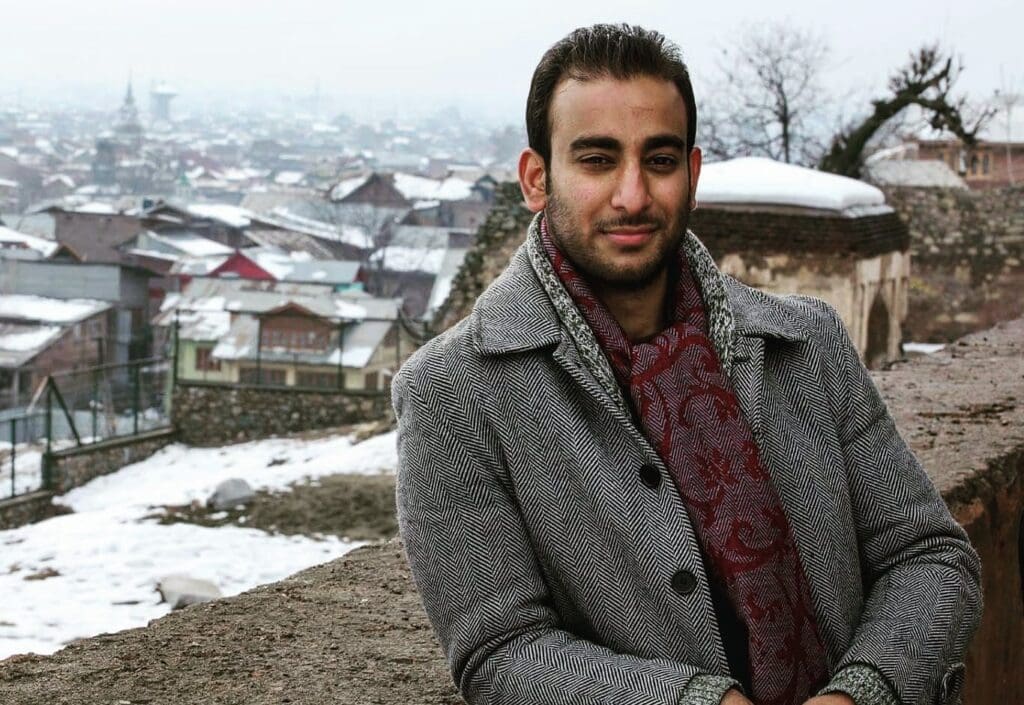
On the first anniversary of his arrest, civil society organisations on Wednesday called for the immediate and unconditional release of Kashmiri journalist and human rights defender Irfan Mehraj.
On 20 March 2023, Mehraj was summoned for questioning and arbitrarily detained by India’s National Investigation Agency (NIA) in Srinagar under provisions of the Indian Penal Code and the Unlawful Activities (Prevention) Act, reads the statement from CIVICUS, a global civil society alliance.
Mehraj is a well-regarded Srinagar-based independent journalist. He is the founding editor of Wande Magazine and a senior editor at TwoCircles.net. He frequently contributed to leading news publications in Kashmir, India and internationally.
Mehraj also previously worked as a researcher at the Jammu Kashmir Coalition of Civil Society (JKCCS), an internationally recognized leading civil society organisation in Kashmir that has done extensive human rights documentation work in the region.
Mehraj is facing multiple charges including ‘sedition’ and ‘funding terror activities’ along with award-winning human rights defender Khurram Parvez, the Program Coordinator for JKCCS. Parvez has been arbitrarily detained for over two and a half years. The NIA targeted Mehraj for being ‘a close associate of Khurram Parvez.’
Both Mehraj and Parvez are in the maximum-security Rohini prison in New Delhi, India.
In June 2023, United Nations experts expressed serious concerns regarding the charges against and arrest of Mehraj and Parvez, stating that their continued detention is ‘designed to delegitimize their human rights work and obstruct monitoring of the human rights situation in Indian-administered Jammu and Kashmir.’
On 7 March 2024, UN experts sounded the alarm on the “harassment and prolonged detention of human rights defenders and journalists” in the country. The cases against Mehraj and Parvez seek to criminalize human rights work in Indian-administered Kashmir and the support for any such work under the guise of countering financing of ‘terrorism.’
“Irfan Mehraj’s detention is part of a growing crackdown against journalists and human rights defenders in Kashmir,” reads the statement.
Since August 2019, when Jammu and Kashmir’s special status was arbitrarily revoked, there has been increasing harassment against the media. Journalists have been arrested, media outlets shut down, and self-censorship has become pervasive.
On 29 February 2024, journalist Asif Sultan was re-arrested by the Jammu and Kashmir police shortly after being released and having spent five years in detention under the UAPA and the Jammu and Kashmir Public Safety Act. Kashmiri journalists also face travel bans and revocation of their passports by Indian authorities. Consequently, information flow from Kashmir–especially on human rights violations–has been severely restricted.
“Mehraj’s continuing arbitrary detention is emblematic of the Indian authorities’ escalating crackdown on human rights including the rights to freedom of expression and association in Indian-administered Kashmir. The detention of Mehraj and Parvez creates a chilling effect among other human rights defenders and journalists, thereby allowing grave and systemic human rights violations to continue with impunity and minimal transparency.”
The statement endorsed by Amnesty International, Human Rights Watch and other reputable groups, called for the immediate release of Irfan Mehraj and Khurram Parvez.
“End all reprisals against Kashmiri human rights defenders and journalists. We urge Indian authorities to repeal or amend the UAPA and to bring it in conformity with international human rights standards. End the criminalisation of human rights defenders, journalists, and their invaluable work,” it said.
“In addition, the authorities must cease their longstanding targeting, harassment, and forced closure of international civil society. Likewise, the authorities must refrain from attacking inter-governmental organisations, including UN Special Rapporteurs and other human rights mechanisms. These entities should have unfettered access to Indian-administered Kashmir and Kashmiri detainees,” it added.



